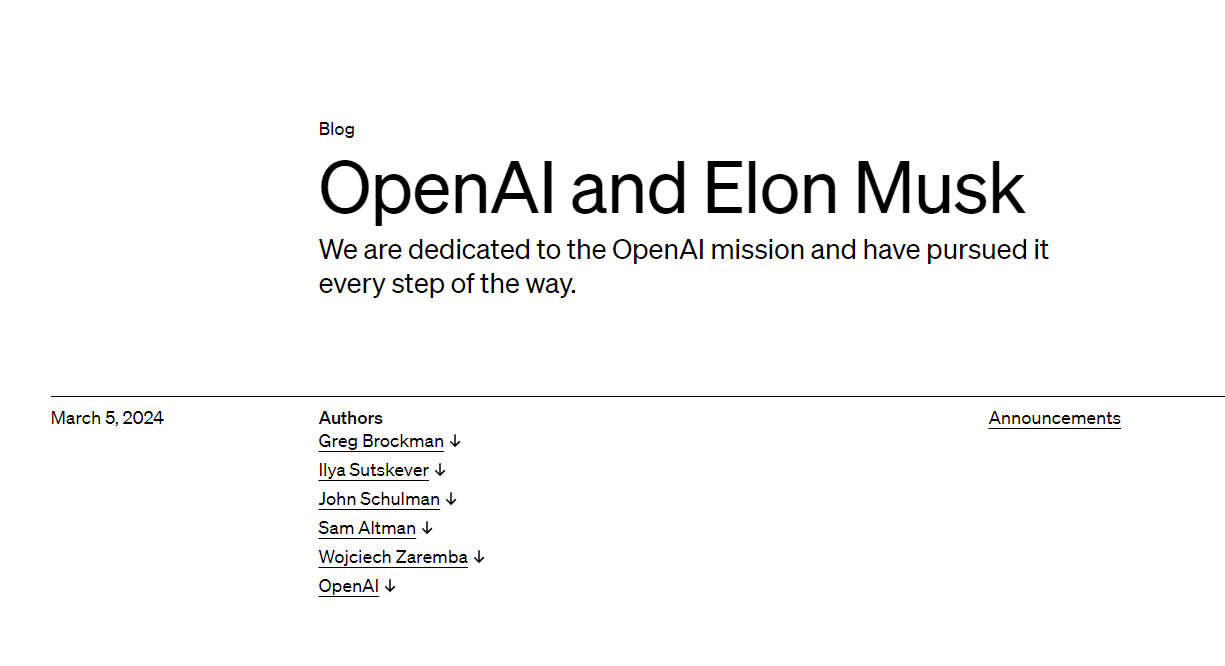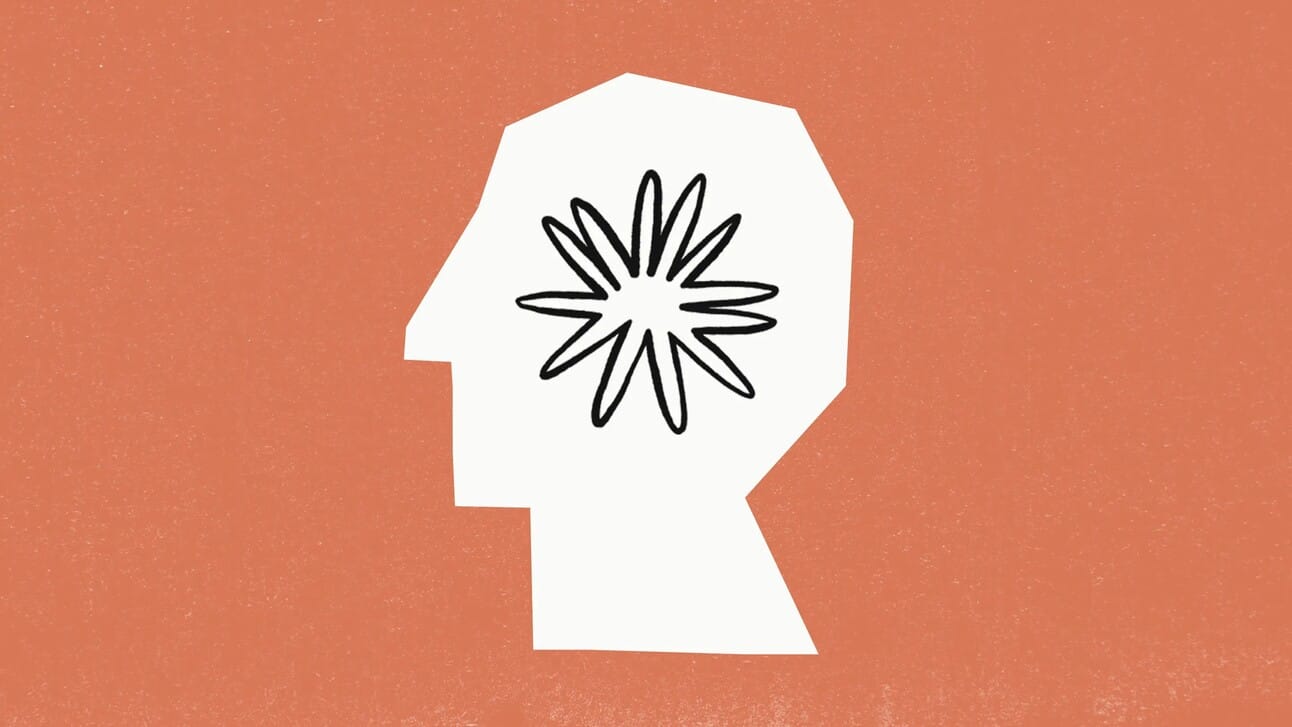- AI Weekly Insights
- Posts
- AI Weekly Insights #20
AI Weekly Insights #20
Legal Tussles, Model Milestones, & Digital Icons
Happy Sunday!
Welcome to "AI Weekly Insights #20", where we shine a light on AI's brightest stars, guiding you through the galaxy of innovation. This week we're diving into OpenAI’s legal drama, Anthropic’s newest AI models, digital recreations of iconic figures, and how AI is making the world more accessible.
The Insights
For the Week of 03/03/24 - 03/09/24 (P.S. Click the story’s title for more information 😊):
What’s New: OpenAI has officially responded to the lawsuit brought forth by Elon Musk, moving to dismiss all of Musk's claims against them.
OpenAI’s Mission: In a detailed blog post, OpenAI reiterated its foundational mission: promoting the development of AI in a way that benefits all of humanity. The post also sheds light on internal discussions between Musk and OpenAI, highlighting key points of contention:
The realization that building AGI (Artificial General Intelligence) would demand significantly more resources than initially anticipated by the non-profit, estimating billions of dollars per year.
A mutual understanding between OpenAI and Musk that a for-profit entity was essential for achieving their ambitious goals. However, disagreements arose over Musk's proposal to merge OpenAI with Tesla, which the AI organization resisted to prevent undue influence by any single stakeholder.
The clarification that the “Open” in OpenAI signifies a commitment to democratizing the benefits of AI, not necessarily indicating open-source practices. This is evident in their strategy to provide widespread access to GPT-3.5 and GPT-4 technologies.
Why It Matters: This is following up on the lawsuit reportedly filed by Elon Musk last week. This response not only addresses Musk's allegations directly but also offers insight into the internal communications made by the organization. Stay tuned to see how this progresses.

What's New: Anthropic introduces the Claude 3 model family, featuring three distinct models designed for various applications.
Claude 3 Models:
Haiku: Tailored for speed and efficiency, Haiku offers a streamlined option for developers requiring quick, simple AI interactions.
Sonnet: Balancing performance and efficiency, Sonnet is ideal for more extensive AI implementations that need a mix of speed and intelligence.
Opus: As the flagship model, Opus is engineered for tackling complex tasks, boasting superior capabilities that supposedly challenge the likes of OpenAI’s GPT and Google’s Gemini models.
Why It Matters: The Claude 3 lineup not only enriches the AI marketplace with more diverse options but also signifies the intensifying race for supremacy in AI technology. This expansion suggests a future where developers and organizations can more precisely match their needs with specialized AI models. TechCrunch offers a review of Opus’ capabilities.

Image Credits: Anthropic
What's New: Soul Machines announces an upcoming AI chatbot of Marilyn Monroe, promising an innovative, real-time interaction experience.
Digital Marilyn: This venture into creating "Digital People" aims to offer personalized engagement through AI, joining the likes of digital recreations of Jack Nicklaus and Francis Ngannou. Interested users can sign up to receive notifications about the chatbot's release.
Why It Matters: The project stirs ethical debates regarding the use of AI to immortalize celebrities. While legal under the partnership with Authentic Brands Group, it raises questions about consent and the preservation of legacy in the digital era. Would Marilyn have wanted to be recreated like this? This initiative could pave the way for more digital recreations, prompting a broader discussion on rights, ethics, and technology.

Image Credits: Soul Machines
Microsoft Copilot: Accessibility is about adaptation to the individual’s needs. Copilot enables users to request or generate adaptations specific to their requirements effortlessly. Microsoft offers this video on Copilot and Accessibility
Seeing AI: This mobile app assists with daily tasks like understanding surroundings, reading the mail, and identifying products for the blind community. Download the app at their website.
Audio Descriptions: Enhanced computer vision capabilities now allow for more detailed and accessible video descriptions. Using computer vision for videos requires filling out a form for interest.
Alternative and Augmentative Communication (AAC): Azure Neural Voices offers natural voice synthesis for apps. This is currently used by Cboard to bring natural voices to their picture board communication app.
Mental Health Support: The deployment of Azure OpenAI in creating mental health chatbots showcases the potential of AI in delivering crucial services to underserved populations. This is currently used by IWill Therapy and Care in India.
Azure AI Studio: Microsoft is committed to making AI development accessible to all developers. This commitment is reflected in the development of Azure AI Studio, which was created with accessibility as a foundational principle.
Your curiosity is the engine driving our exploration of the AI landscape's continuous evolution. Spread the word among AI aficionados 🔄. Thoughts? Questions? Feel free to comment or reply. See you next Sunday!
Warm regards,
- Kharee